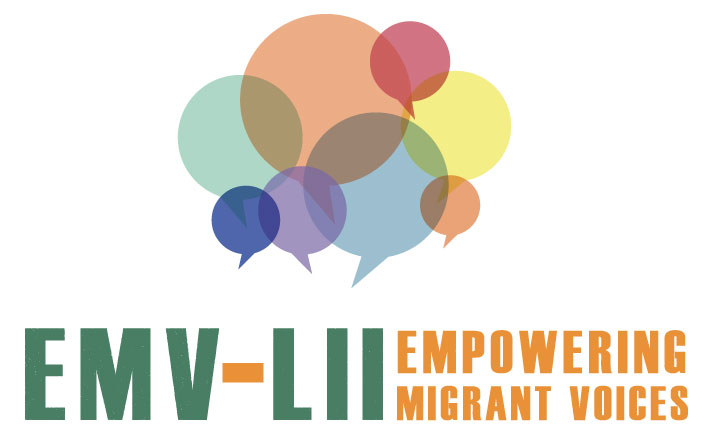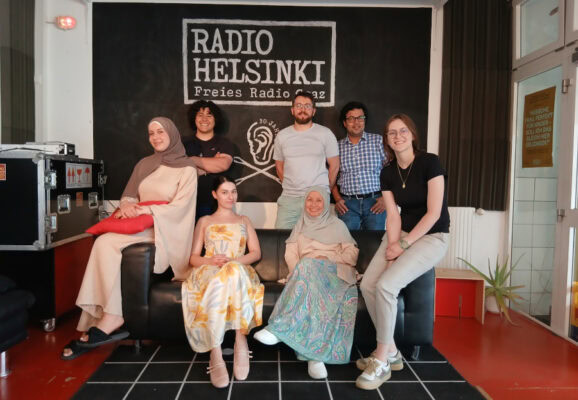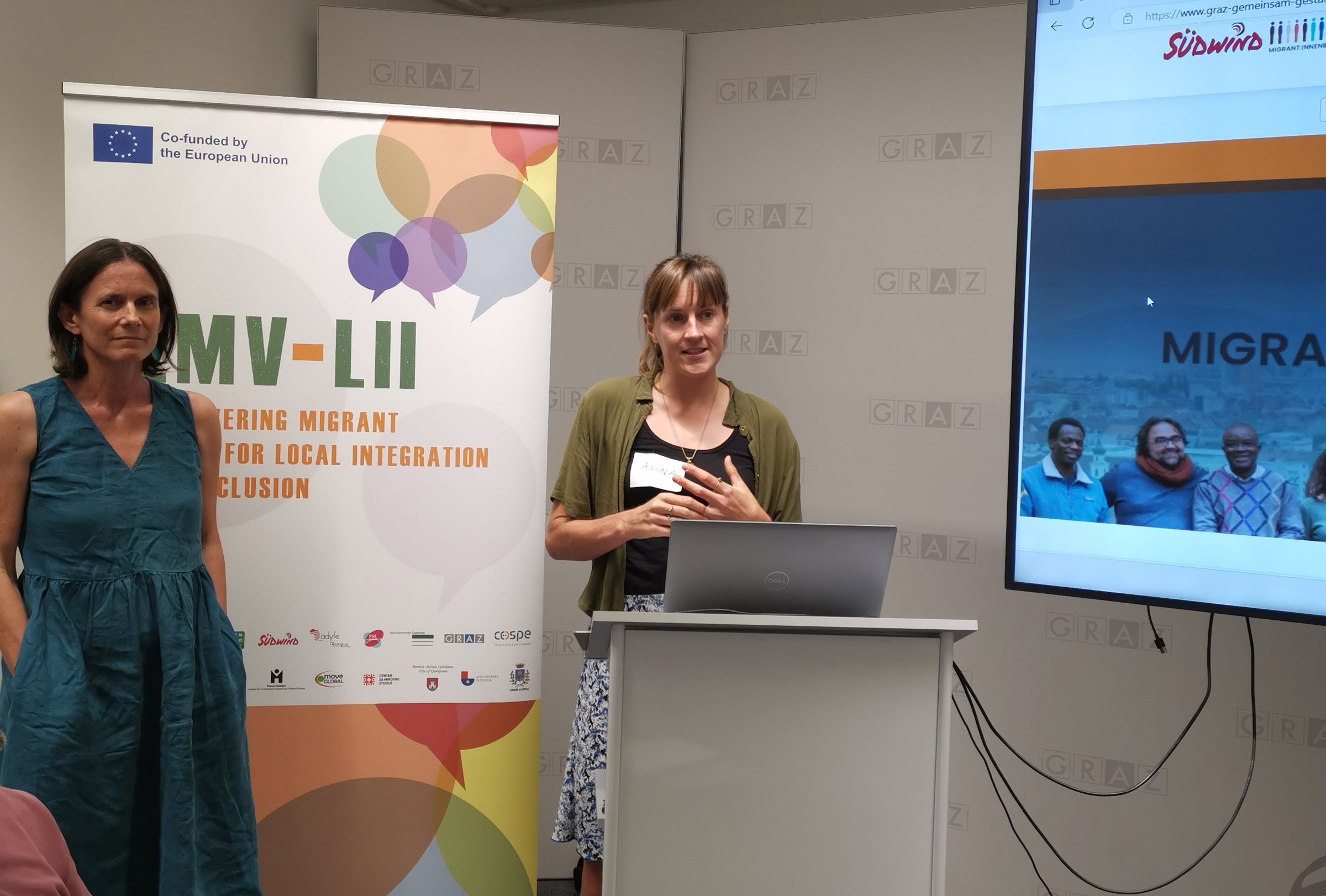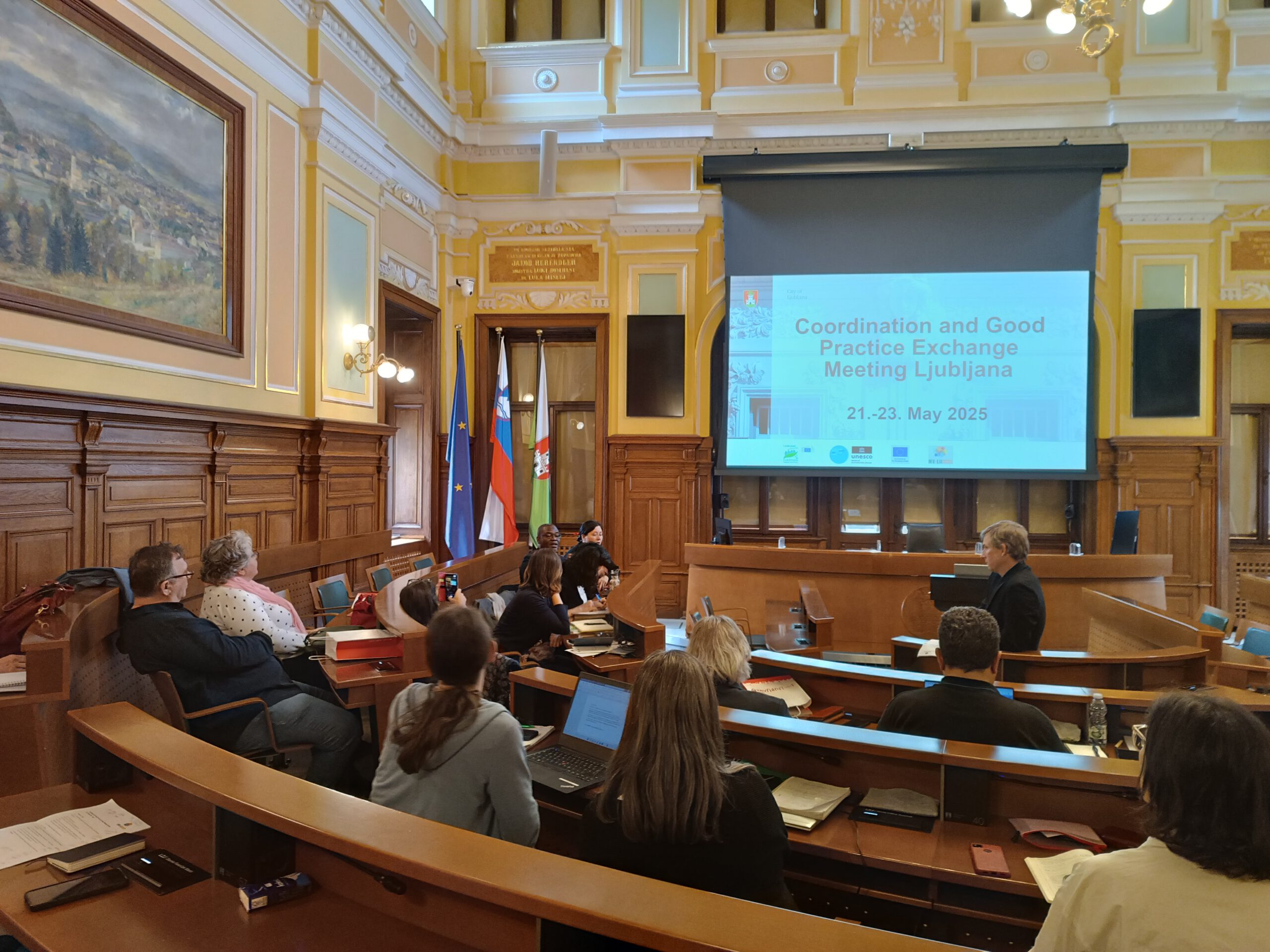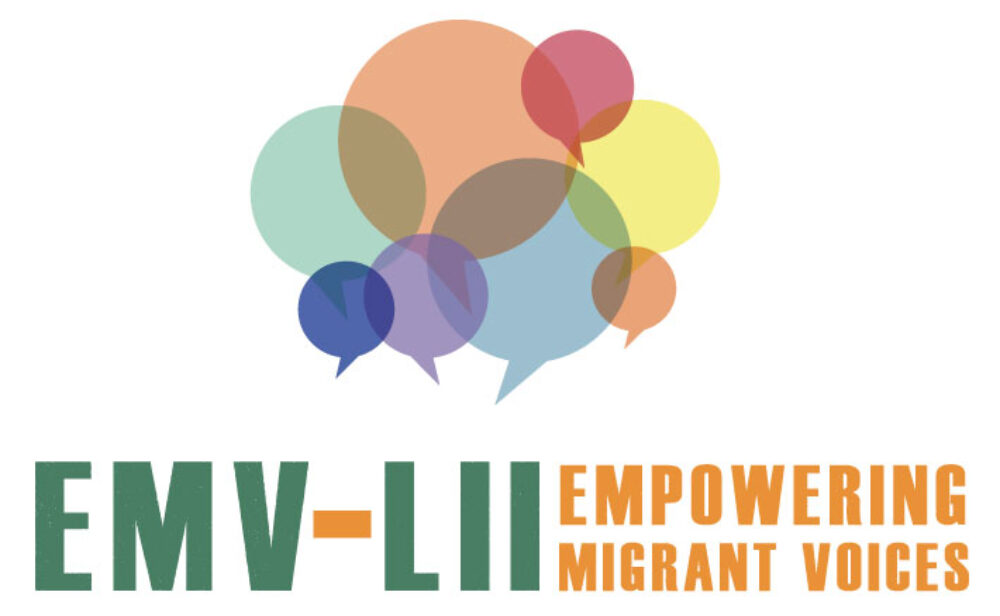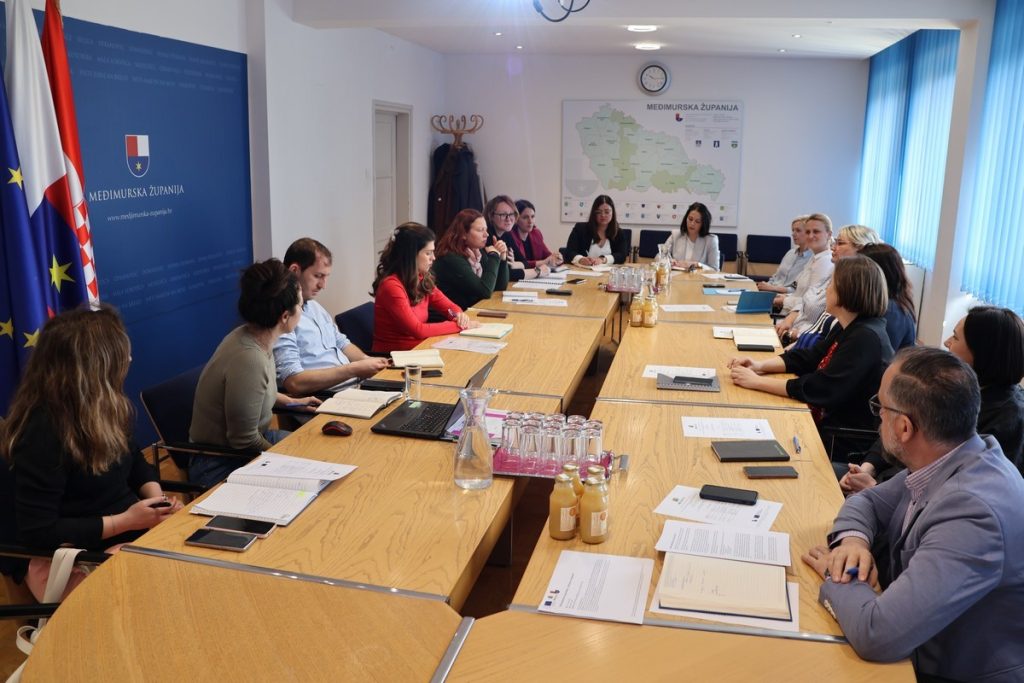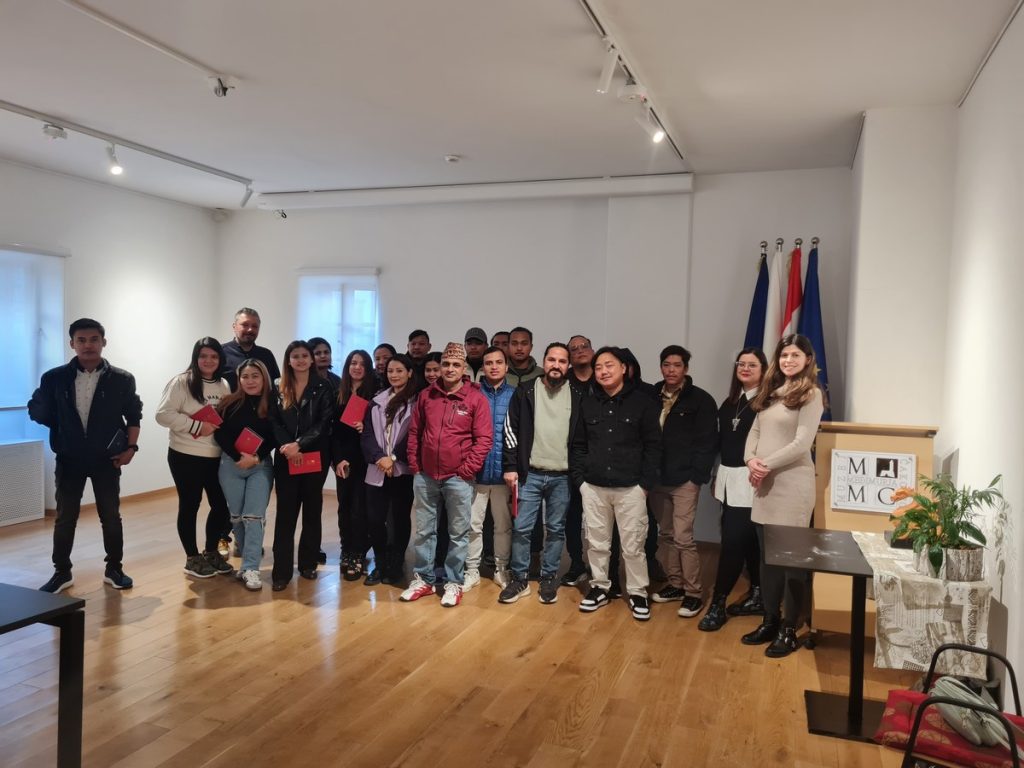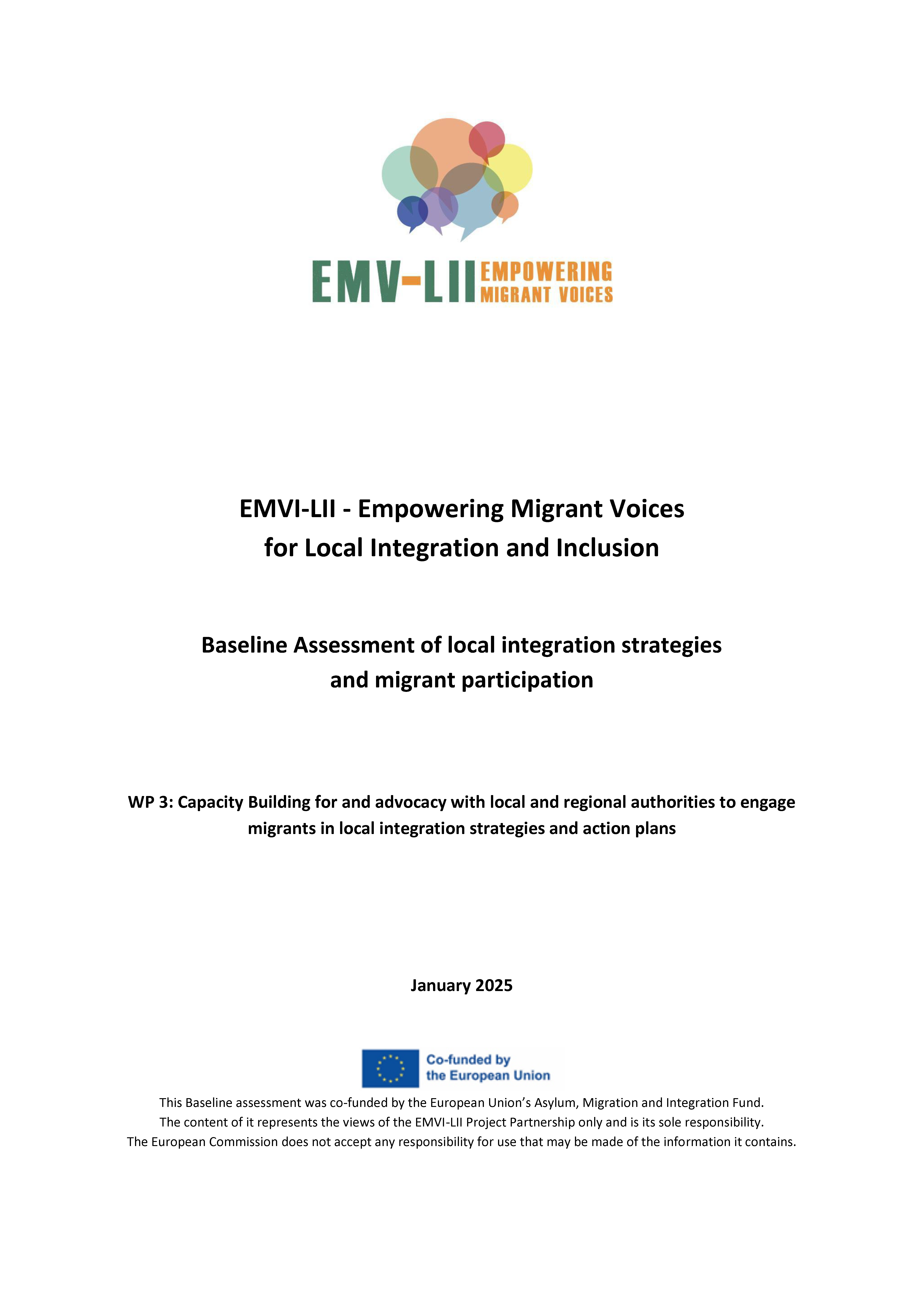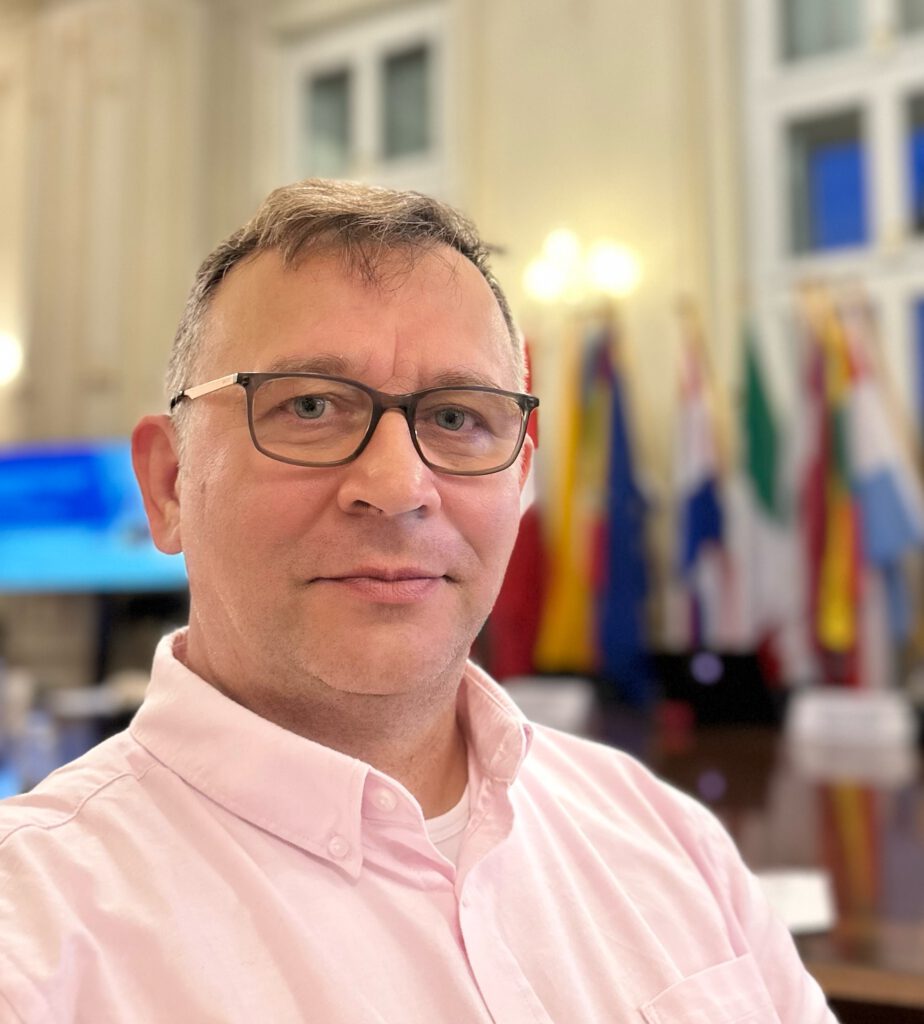
Migration has existed from the beginning of time and it is a broad topic, which shouldn’t be treated from the point of view of security, but of rights and integration. This is what Ljubisa Vrencev, co-founder of the Greek NGO Symbiosis, that participates in the EMVI (Empowering Migrant Voices) project, said. “The NGO Symbiosis has been part of the EMVI project since the beginning. The interesting thing is that we are from Thessaloniki, but the project activities took place in Heraklion, Crete. So we’re working remotely, it is a little bit challenging. However, I think that the project itself has brought many good results: on a very practical level, we have managed to establish excellent relationships with local stakeholders in the municipality of Candia”, he told us at the end of the meeting that the EMVI project participants delegations had in Brussels, from the 14th to the 16th of November. “Heraklion is an interesting city, because it is actually the city with the highest income in Greece. Furthermore, there is a great need for workers in Crete and the migrant communities are better off than others in the rest of the country, which was a bit of a surprise to us at first. However, I think this also gave a big boost to the results we achieved in Heraklion: we trained more than 400 people from local services, from local migrant communities, also from civil society organisations, service providers, and we managed to create and improve the local network regarding the migration issue”, he explains.
What do you think is the main result?
We continue to believe that the integration of migration issues should be done in all policies, not just through the design of specific policies on migration. There should be gender integration, for example, and migration integration. Migrants shouldn’t just talk about how they arrived and how difficult it was. Like every citizen, they have problems related to the healthcare system, the education and housing system and to everything that an ordinary citizen would discuss. The policy recommendation is the possibility for migrants to vote in local elections and maybe even regional elections. There was a legal provision about it. However, this law has been reversed and this is currently not possible but we have seen that in other countries that participated in the project; for example in Slovenia there is the possibility for migrants to vote in local and regional elections. Having the opportunity to express yourself about ordinary things is something that should absolutely be everywhere in Europe.
What do you expect from these days in Brussels and what feelings do you have after the meeting with the MEPs and the General Directorate for Migration and Home Affairs (DG Home) of the European Commission?
The policy-making process within the European Union actually involves not only the European Parliament, but also the Commission and the European Council so it’s kind of a triangle that makes all the decisions. We managed to talk to people from DG Home and to the MEPs. I’m satisfied with how it went and in addition to the interest shown by the parliamentarians, I also liked the fact that they came from different political options, which is very positive. I really hope they will take their part in the integration of migration issues, that this might be good material for them and for their campaigns for the next European elections which are coming very soon.
You come from a country that the EU often considers to be at the forefront of the migration issue, Greece: is there anything you want to ask Europe to do?
I don’t think Greece is special in any way. I think it is important to establish legal pathways and this is the most important thing that all Europe countries need, not only Greece. I don’t really believe that migration is only a security issue. It is a general, social and political issue: humans migrate from the beginning of time. This is what we have always done. So, at the European level we should really avoid to talk about migration from a security point of view.
